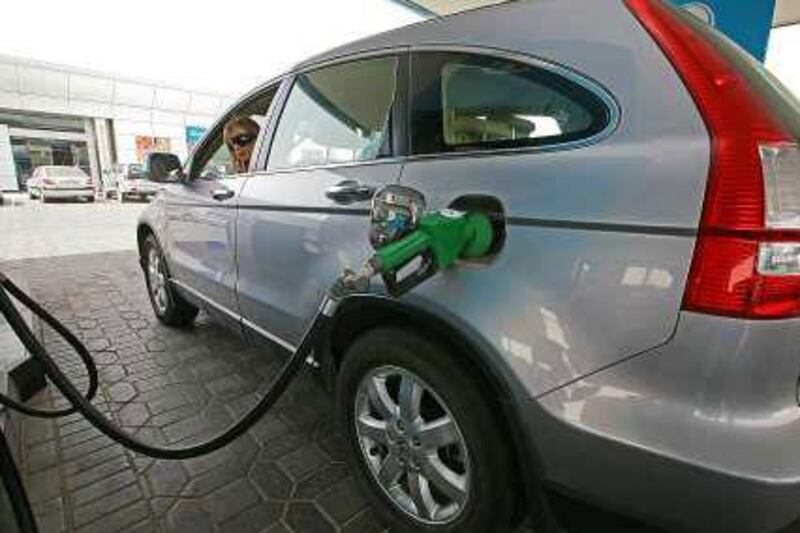LONDON / NEW YORK // World oil consumption will rise for the first time in two years in 2010 as a recovery in the global economy boosts demand, according to a Reuters poll of top oil-tracking analysts and organisations. But the expected increase of 1.1 per cent worldwide is unlikely to drain away all the excess supplies, despite the slow growth in production outside OPEC. Oil demand is predicted to rise by 900,000 barrels per day (bpd) to 84.9 million bpd in 2010, the poll of nine forecasters found. World demand has fallen by 2.5 per cent since hitting 86.2 million bpd in 2007, as the dual impact of high prices and the economic crisis cut consumption.
The steep drop in demand saw oil prices crash from record highs of almost $150 a barrel last summer, to below $40 a barrel at the turn of the year. Since then prices have risen back to around $70 a barrel after the OPEC producer group tightened supplies. Prices have also found support from investors betting demand could start to outpace supply growth in years to come. Some analysts said that view might be premature. "Six months ago there were worries that in the future supplies could tighten a lot, but I think those worries aren't
as big now," said Adam Sieminski, chief energy economist for Deutsche Bank. "In our view oil demand won't be particularly robust next year, and non-OPEC supply will still be strong." Non-OPEC supply was seen rising by an average of 100,000 bpd in 2010 to 50.5 million bpd, with the need for crude from OPEC seen rising by an average of 400,000 bpd to 29.5 million bpd. That is some 2 million bpd below the amount of crude oil the world needed from OPEC members in 2008.
OPEC member countries have tried to cut as much as 4.2 million bpd of oil ? roughly 5 per cent of world demand ? from the market since September in a bid to soak up excess supplies. The group's spare production capacity was estimated to rise above 6.5 million bpd in 2010 if it holds output steady. But OPEC's output of natural gas liquids (NGLs), which are not subject to the group's official quota limits, will help boost global supplies, rising by 12 per cent to 5.6 million bpd in 2010.
Almost a quarter of next year's increased global thirst for oil, 200,000 bpd, is expected to come from China. Forecasters saw China's oil demand growing by between 1 and 4 per cent, from levels of 8 million bpd this year. The industrialised OECD nations will burn 45.6 million barrels next year, the same amount as 2009. The pace of any recovery in demand from the United States, which consumes about a fourth of the world's oil supply, is a key variable.
"The main drivers in oil demand growth in 2010 will be the China, Saudi Arabia and the United States. These are the 3 key areas, with US demand expected to recover as the economy picks up," Barclays Capital analyst Amrita Sen said. The pace of economic recovery, especially in the industrialised world, is a wild card for oil demand and prices. Merrill Lynch, the most bullish forecaster polled, saw the
global economy growing by 3.7 per cent next year. The average forecast was for economic growth of 2.8 per cent. "How effective stimulus packages in the United States and China have been will have a big impact," Energy Security Analysis Inc. director of oil markets Rick Mueller said. "Obviously, the cost of oil is another issue, since high costs could hurt recovery." Prior to the economic crisis, many oil analysts estimated oil demand growth as global GDP growth minus around 2 per cent. But several analysts polled said that relationship had broken down after last year's price spike and the economic downturn.
"While Barclays has one of the largest projections for global GDP growth (3.6 per cent), we have taken into account the fact that we're likely to see more energy efficiency," said Mr Sen. "As well as substitution away from oil to cheaper natural gas, political initiatives in Europe and North America should cut demand growth, so our projection isn't as large as some." *Reuters





